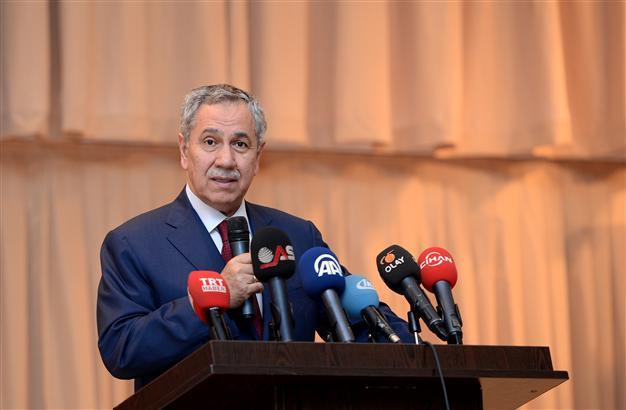Turkish deputy PM calls for selective releases in Ergenekon, as formulas debated
ANKARA- Hürriyet

'There are people like [Turkey’s former chief of staff] İlker Başbuğ and everybody says that they should be released,' Arınç said. AA photo
Deputy Prime Minister Bülent Arınç has said that those who were sentenced in the Ergenekon case should be “selectively released.”
Speaking to Olay TV in Bursa, Arınç was questioned about Prime Minister Recep Tayyip Erdoğan’s recent remarks on the upcoming “democracy package” that would reduce the maximum detention period to five years.
“There are cases that are still in the preparation procedure. A legal arrangement that will cover the cases of these convicts should be made. There are such Ergenekon suspects like [retired general] Veli Küçük, [whose imprisonment] nobody opposes. However, there are people like [Turkey’s former chief of staff] İlker Başbuğ and everybody says that they should be released,” he said.
Last year, the Aug. 5 verdict trial marked the end of the Ergenekon coup case. In total, 21 of the 275 suspects were acquitted and 17 were arrested at the verdict trial, as the cases regarding three suspects who died during the course of the trials were dismissed.
The rift between Erdoğan and the Gülen movement, his former ally, was crystallized after the graft probe started on Dec. 17. After Erdoğan’s advisers said there was a “parallel state” within the state that plotted a “conspiracy against the Turkish army,” pointing to Gülenists, a debate about retrying the coup plot cases began.
On Jan. 10, the prime minister told reporters that there were “people who are unfairly in jail” in the Ergenekon case.
How Ergenekon convicts can be released now remains an open question, on the eve of a 22-article judicial reform package that the governing AKP has sent to the Parliament floor.
The latest formula to release Ergenekon convicts has been proposed by Sema Aksoy, the president of the Ankara Bar Association. “Our suggestion for the maximum period of detention is two-plus-one years. This is in tune with the verdicts of the Constitutional Court and the European Court of Human Rights,” Aksoy said.
If explicitly stated in a law, a three-year limit will fix the current practice set by a “counterintuitive” verdict of the Court of Appeals, which has led to “people rotting in prisons because of arbitrary decisions,” Aksoy added.
